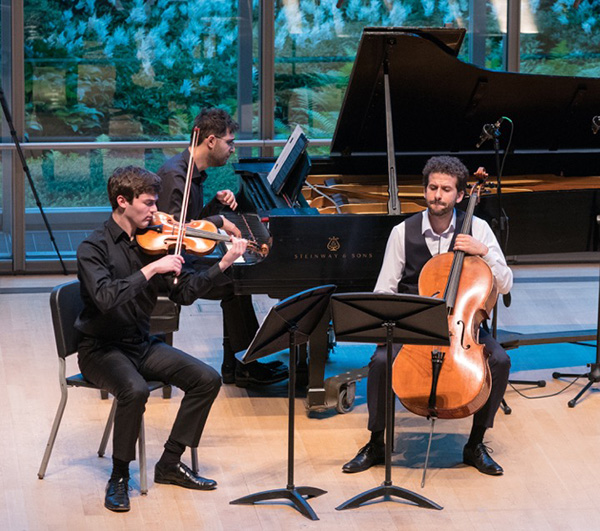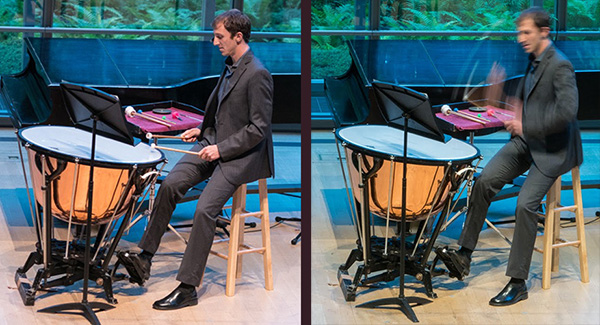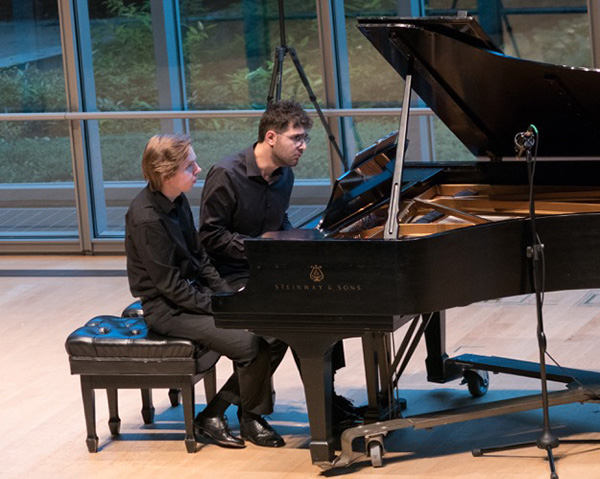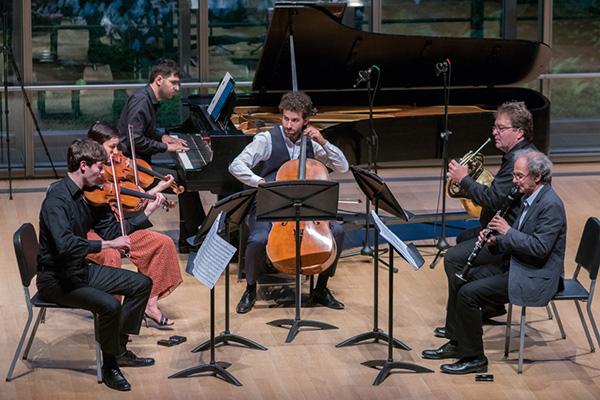by Daniel Hathaway

Liszt, the most famous Hungarian, wrote a dozen symphonic poems after settling in the German city of Weimar. Orpheus, one of four honoring legendary or actual creative geniuses — along with Tasso, Prometheus, and Mazeppa — served as a prologue to the first Weimar performance of Gluck’s Orfeo ed Euridice in February of 1854.
It’s a lovely, meditative piece on the subject of the Greek god whose lute playing — as Shakespeare noted — charmed not only human souls, but trees, plants and flowers, and the billows of the sea as well. Its lyrical melodies have inspired arrangements by other composers, including Saint-Saëns, who reworked the piece for violin, cello, and piano.
Although violinist Nathan Meltzer, cellist Nicholas Canellakis, and pianist Roman Rabinovich couldn’t have been expected to conjure the plush timbres of a large orchestra on Friday evening, they caught the sense of enchantment Liszt was after. The strings played songfully, and Rabinovich strummed the harp lines with wistful expressiveness.

The piece is part of Triangel, a larger work subtitled “Actions for a Creative Percussionist and 27 Musicians” that Eötvös wrote in 1993 shortly after completing his 12-year tenure as director of the Ensemble InterContemporain. Cohen’s masterful performance made you eager to hear the whole suite, especially movement 11, for amplified triangles and clarinet. Perfect for a future ChamberFest season?

Marketed by publishers for domestic music-making and relished by amateur pianists, the dances really shine when brought to life in the hands of professionals, who — like Pohjonen and Rabinovich — can bring out their subtleties and make dramatic dynamic contrasts and instantaneous tempo changes. They saved the dance everybody knows for the end of the set, and the audience murmured appreciatively before adding fervent applause at the end.

The Sextet’s near-symphonic sense of scale, its virtuoso piano part — tailor-made for the composer — and its lively sense of humor, interrupted only by a dark march in the second movement, make it a treat for the listener, who is happy to be tricked into applauding too early at the end. Meltzer, Canellakis and Rabinovich joined violist Jessica Bodner, clarinetist Franklin Cohen, and hornist William Caballero in a vibrant performance that must have been the first time many in the packed house have encountered this piece. It’s not one for timid players to take on, but it made a fine match for this stellar ChamberFest team.
Photos by Gary Adams.
Published on ClevelandClassical.com July 2, 2019.
Click here for a printable copy of this article


